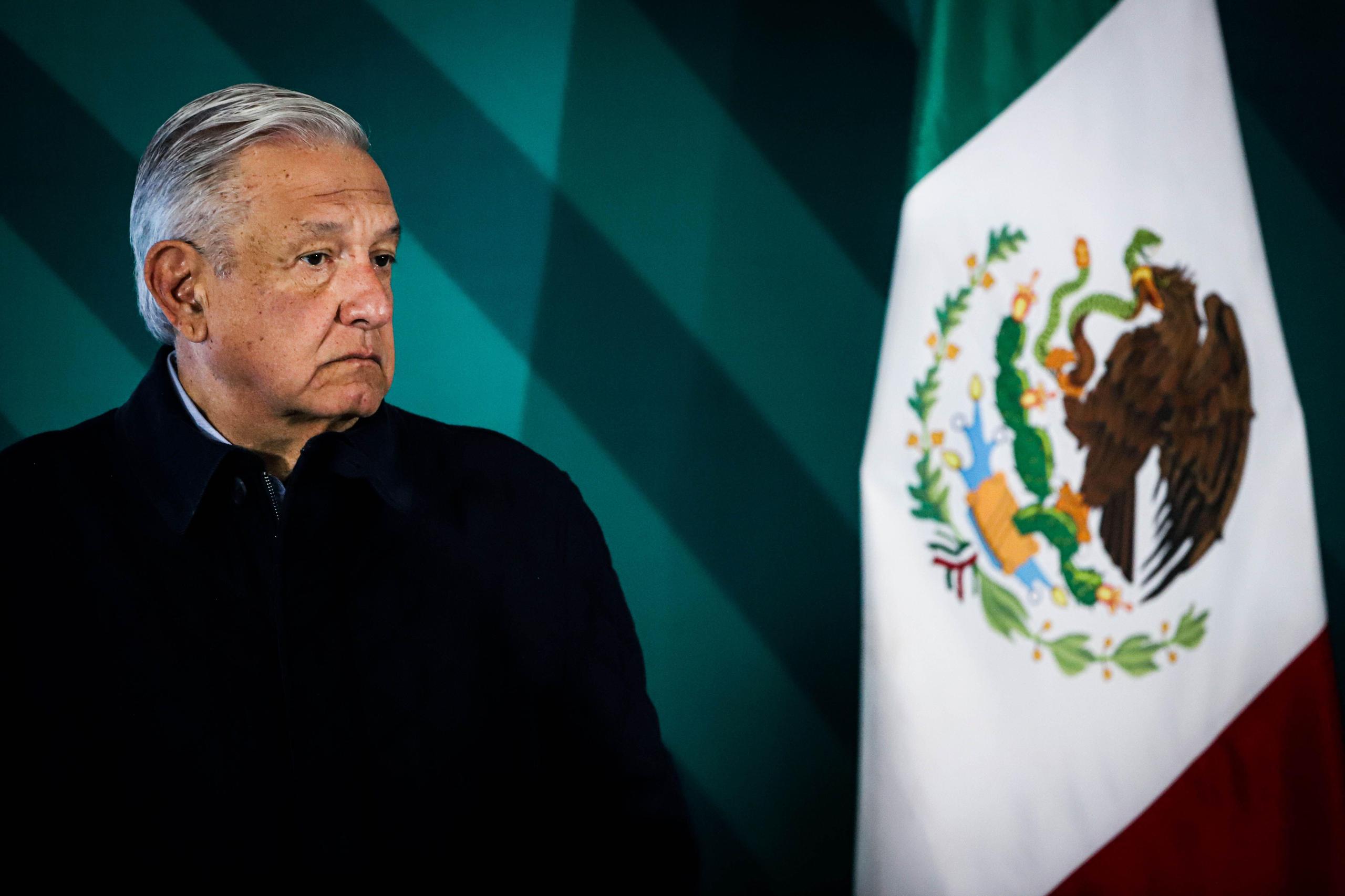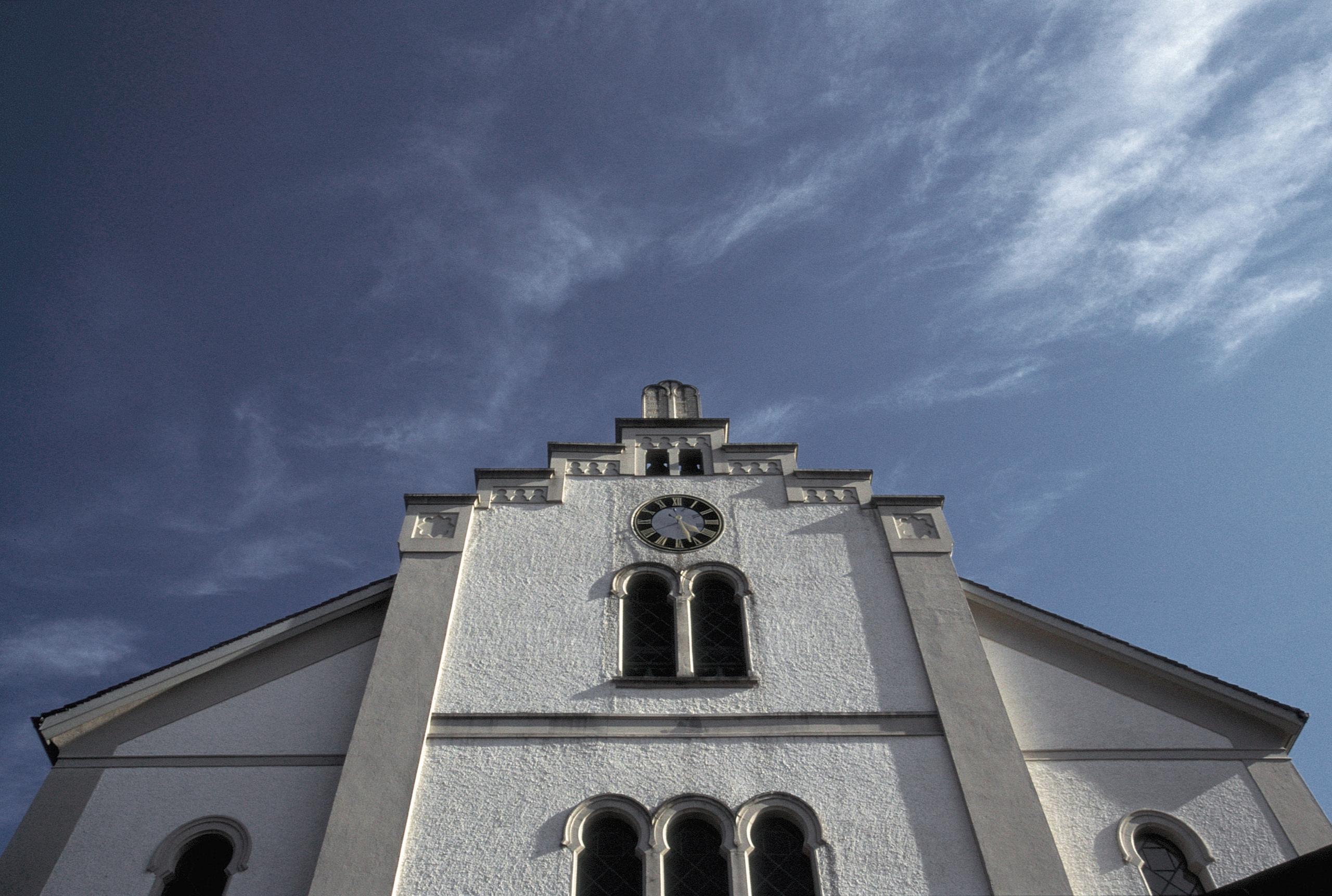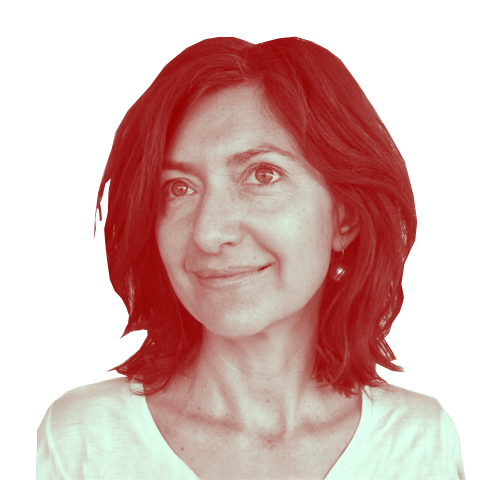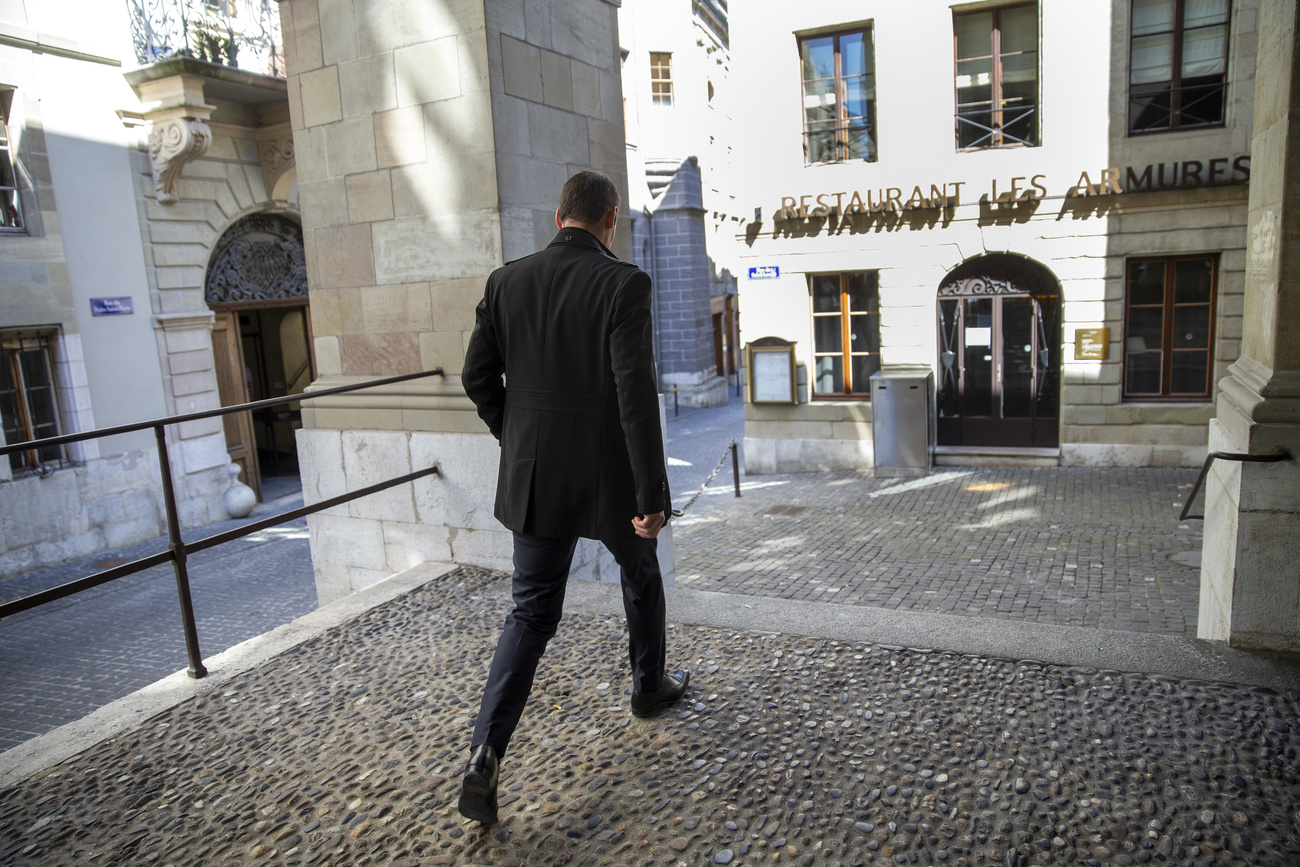Recall vote: Mexico uses a Swiss democracy tool

On April 10 more than 90 million Mexicans will vote on recalling their president. The process which allows voters to remove an elected official was initially invented in Switzerland in the mid-1850s. But while only used once in Switzerland, recalls are becoming more frequent around the world. For good and sometimes not so good reasons.
The upcoming Mexican popular recall vote will determine the fate of the president in office, Andrés Manuel Lopéz Obrador. The 69-year-old head of state initiated the vote himself through a non-governmental organisation, betting a strong popular win would breathe life into the last two years of his six-year mandate. The campaign gathered more than the 3% of eligible voters – 2.75 million – needed to validate a recall vote.
The recall vote process (“recall”) is a direct democracy tool which allows a certain number of citizens – in Mexico at least 3% of eligible voters – to initiate a nationwide vote to end or continue the mandate of an elected official, for example the president.
The recall process is similar to an impeachment: an office holder is “recalled” by an authority, but with the extra step of a popular vote. For example, the removal of Romanian president Traian Băsescu was approved by the voters in a popular vote on July 29, 2012. In principle, recalls are “bottom-up”, while impeachments are “top-down”. However, in the current Mexican case it is mixture of both processes as the president himself initiated the recall.
Recalls and impeachments should however not be confused with the removal from office of a magistrate. The first instruments are political decisions by the people or their representatives, while removals on the other hand are legal decisions made by parliaments and courts. The latter are directed against individuals who enjoy legal protection.
One of the promoters of the recall campaign, Gabriela Jiménez Godoy, an active member of the governing Morena party, described the exercise as “a form of increasing democracy”, while Mexican Tiktok influencer Patty MirandaExternal link recommended a yes-vote so that “Andrés Manuel can keep working for México”.
Meanwhile, all the main opposition parties, including the PRD, PAN and PRI, appealed to Mexicans to not participate in what they call a “plebiscitarian exercise”. “It is simply a waste of time and money,” they said.
This will be the first-ever nationwide recall vote in Mexico. It follows the first experience of a referendum in August 2021 on a new law intended to punish the former president for corruption.
This was also initiated by the current president and ended with the invalidation of the whole process due to a low participation rate: just 7% of eligible voters participated instead of the required 40%. The recall this month risks the same fate. These two initiatives show how difficult and problematic it is to introduce direct democracy from above.

More
Mexico’s first referendum: for democracy or for populism?
Global trend
The current recall in Mexico is part of a growing global trend, where the process is used to unsettle presidents (Hugo Chávez in Venezuela, Traian Băsescu in Romania), mayors (Susana Villarán in Lima, Peru, Hanna Gronkiewicz-Waltz in Warsaw, Poland) or governors (Gray Davis, California, United States).
One of the most well-known examples, was that of Democrat governor Davis. He was recalled after a campaign initiated by bodybuilder and movie star Arnold Schwarzenegger who later became governor of the state for the Republican party.
Last year, the same state instigated another recall vote on governor Gavin Newsome, a Democrat. The recall was rejected by 58 %.
Recipe for a big mess
Scholarly research (see infobox below) suggests that most recalls are launched to destabilise opposing elites rather than as instruments of accountability. Even if the recall vote is unsuccessful, it often leaves the elected official in a weakened position and can lead to political instability. This was the case for Lima’s mayor Susana Villarán.
Villarán survived a recall vote on March 17, 2013, but her government was weakened because more than half of the councillors were removed and in new elections she lost the majority she had before.
Gustavo Petro, elected mayor of Bogota in 2012 – and the favourite for the upcoming Colombian presidential elections in May 2022 – was removed from office in 2013 due to a dismissal order from the Office of the Attorney General of the Nation (an office with responsibility for law enforcementExternal link, prosecutions and legal affairs generally). This happened just few days before a scheduled recall vote that then was cancelled.
In Warsaw, Poland, mayor Hanna Gronkiewicz-Waltz and in Chisinau, Moldova, mayor Dorin Chirtoacă both survived recalls after not reaching the required participation turnouts, thus invalidating the process. This left them in weaker positions to finish their mandates.
In all of these cases, whether the elected official stayed in office or not, the recall process proved counterproductive. Rather than improving patterns of governance, they damaged democracy, eroded public debate and deviated public resources.
A way to punish corrupt politicians, or…
Nonetheless, recalls are also used to fulfil their primary function: to hold elected officials accountable. They are often launched alongside the many accusations of corruption that occur in all countries, including that elected officials use their offices for personal benefits.
Many public surveys confirm the growing level of mistrust between the citizens and their government. In Europe – according to the Global Corruption Barometer 2021External link – a majority of EU citizens believe that governments are run by a few big interests looking out for themselves (53%) and almost a third of people think corruption is getting worse in their country. A further 44% think trust will not be getting any better in the future. Against this backdrop, recall provisions have been introduced in more and more jurisdictions around the world.
During the last French presidential campaign La France Insoumise, a left-wing political party led by Jean-Luc Mélenchon (which is a candidate once again in the first round of the French election this Sunday), proposed a constitutional convention to create a Sixth Republic featuring strong recall provisions.
…a Swiss invention, which almost was made superfluous
In Switzerland the procedure has been available to voters since the middle of the 19th century. In fact, the country was the first to allow the population to recall elected officials through popular vote. From 1846 to 1915, nine Swiss cantons introduced the process. In six of them – Bern, Schaffhausen, Solothurn, Ticino, Thurgau and Uri – recalls are still possible.
Most interestingly, in spite of this early and extended accessibility, Swiss voters have only once recalled an elected official: in July 1862, when 63% of the (male) voters supported the early termination of parliament’s mandate. The government was forced to resign and call for new elections.

More
‘Revocation right as democracy’s security valve’
“The introduction of other tools of modern direct democracy – like people’s initiatives or referendums – have made recalls almost superfluous in practice,” argues political scientist Uwe Serdült, who teaches at the Centre for Democracy in Aarau.
More recently, though, several political scandals have revived the idea of recall provisions in Switzerland: in canton Geneva, where a member of the executive was convicted of accepting perks from a foreign government while in office, more than 90% of voters approved the introduction of a recall option in late November last year. And in canton Aargau, citizens will decide on May 15 if a new process to impeach elected executive office holders by the parliament should be introduced.
Edited by Virginie Mangin
Japan: Okamoto, M. & Serdült, U. (2020) Recall in Japan as a Measure of Vertical Accountability, in Welp, Y. & Whitehead, L. (2020) The politics of recall elections, London: Palgrave.
Ecuador: Welp, Y. & Castellanos, A.S. (2020) Understanding the Use of Recall Referendums: Evidence from Ecuador, International Political Science Review. https://doi.org/10.1177/0192512119830373External link
Colombia: Welp, Y. & Milanese, J.P. (2018) Playing by the rules of the game. The partisan use of recall referendums in Colombia. Democratization, 25(8), 1379–1396.
Global trends: Welp, Y. & Whitehead, L. (Eds) (2020) The Politics of Recall Elections. Palgrave, pp. 159–178.External link
Serdült, U. & Welp, Y. (2017) “The levelling up of a political institution. Perspectives on the recall referendum”, in S. P. Ruth, Y. Welp & L. Whitehead (Eds.), Let the people rule? Direct democracy in the twenty-first century, Colchester: ECPR Press, pp. 137–154.
Poland: Piasecki, A. (2011) “Twenty Years of Polish Direct Democracy at the Local Level,” in Schiller, T. (Ed.), Local Direct Democracy in Europe, Germany: Springer, pp., 126–137.
Peru: Welp, Y. (2016) Recall referendums in Peruvian municipalities: a political weapon for bad losers or an instrument of accountability? Democratization, 23(7), pp. 1162–1179.
US: Zimmerman, J.F. (1997) The Recall: Tribunal of the People. New York: Praeger Publishers.
Germany: Geissel, B & Jung, S (2018) “Recall in Germany: Explaining the Use of a Local Democratic Innovation”, Democratization vol 25 (8).
Switzerland: Rappard, W. (1912) “The initiative, referendum and recall in Switzerland”. Annals of the American Academy of Political and Social Science 43, pp. 110–45. Serdült, U. (2015) “A dormant institution – history, legal norms and practice of the recall in Switzerland”. Representation: Journal of Representative Democracy, 51 (2), pp. 161-172.
Edited by Virginie Mangin

In compliance with the JTI standards
More: SWI swissinfo.ch certified by the Journalism Trust Initiative




You can find an overview of ongoing debates with our journalists here. Please join us!
If you want to start a conversation about a topic raised in this article or want to report factual errors, email us at english@swissinfo.ch.